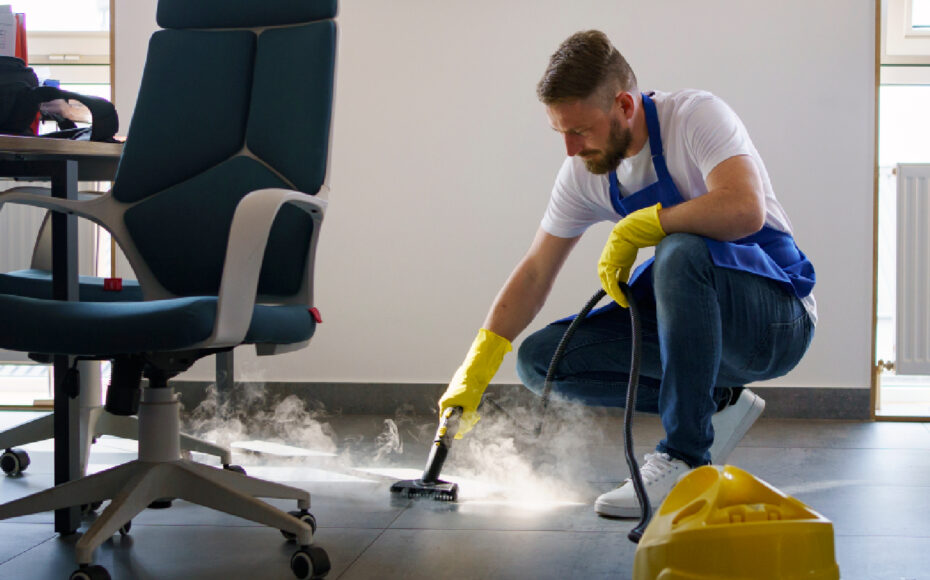Introduction
A clean office is often seen as a reflection of professionalism, but its influence goes far beyond appearances. The environment in which employees work every day directly affects their health, motivation, and overall performance. Regular office cleaning is not just a matter of hygiene. It is a strategic investment that enhances productivity at work. Businesses that prioritize cleanliness create spaces where employees feel valued, comfortable, and motivated to give their best.
This blog explores how regular office cleaning improves productivity, the science behind cleanliness and focus, common challenges in unclean workplaces, and actionable strategies businesses can implement. By the end, you will understand why office cleaning should be at the top of every company’s agenda.
The connection between cleanliness and productivity
A healthier workforce
When offices are cleaned regularly, germs and bacteria are reduced significantly. Dusty desks, dirty carpets, and poorly sanitized restrooms often harbor harmful microorganisms that can cause flu, allergies, and respiratory issues. Frequent illness leads to absenteeism, which disrupts workflow and reduces productivity. By maintaining a clean office, businesses reduce the chances of employees falling sick and missing work.
Studies by occupational health organizations reveal that clean workplaces can cut down sick days by nearly 46 percent. Healthy employees are more consistent, more engaged, and able to contribute fully without frequent interruptions.
Improved concentration and focus
Cluttered and dirty environments create distractions. When employees are surrounded by dust, unorganized papers, or overflowing trash bins, their ability to concentrate drops. The brain interprets clutter as unfinished tasks, which causes mental fatigue. On the other hand, a clean office promotes a sense of calm and order, allowing employees to focus on the work that truly matters.
Enhanced mental well being
Psychological studies confirm that clean and organized spaces reduce stress. Employees working in a well maintained office report higher levels of satisfaction and motivation. This mental well being translates directly into better problem solving, creativity, and collaboration, all of which drive productivity.
The hidden costs of an unclean workplace
Many businesses underestimate the consequences of poor cleaning habits. While it might seem like skipping a cleaning service saves money, the long term costs are far greater.
Increased absenteeism
Unclean workplaces are breeding grounds for illness. A single employee catching the flu can quickly lead to a chain reaction, affecting entire teams. More sick leaves mean delayed projects and lower efficiency.
Lower employee morale
When employees notice that their workplace is not being taken care of, they may feel undervalued. This lowers morale and loyalty, often leading to higher turnover rates. Recruiting and training new staff costs far more than maintaining a regular cleaning schedule.
Damage to company reputation
Clients and partners form impressions based on the state of the office. A dirty or poorly maintained space can damage the company’s image, making potential clients doubt professionalism. Employees too may hesitate to recommend the workplace to others if it does not reflect a healthy environment.
How regular office cleaning boosts productivity
Reduces distractions
Clean desks, organized workspaces, and sanitized common areas eliminate unnecessary distractions. Employees can locate documents, supplies, or tools faster, which saves time and energy.
Promotes teamwork and collaboration
Employees are more likely to use shared spaces such as meeting rooms, lounges, and cafeterias when they are clean. These interactions encourage collaboration and knowledge sharing, both of which drive productivity.
Protects office equipment
Dust and dirt do not only affect people. They also harm electronic devices such as computers, printers, and air conditioning systems. Regular cleaning reduces maintenance costs and prevents equipment downtime, ensuring that work continues smoothly.
Creates a positive first impression
A sparkling clean office makes employees proud of their workplace. Pride fosters accountability, and employees become more committed to maintaining a professional attitude. This positivity spreads across teams and contributes to higher performance levels.
Practical strategies for maintaining a clean office
Daily cleaning routines
- Emptying trash bins every day
- Wiping down desks and keyboards
- Sanitizing high touch surfaces like doorknobs, elevator buttons, and phones
- Vacuuming carpets and sweeping floors
These small daily actions prevent dirt buildup and keep the environment pleasant.
Weekly deep cleaning
- Washing windows and glass partitions
- Cleaning kitchen appliances and staff room areas
- Polishing furniture and fixtures
- Disinfecting restrooms thoroughly
Weekly cleaning ensures areas that gather dirt slowly are still well maintained.
Monthly or quarterly maintenance
- Carpet shampooing and upholstery cleaning
- Air duct and vent cleaning
- Detailed sanitization of less used storage spaces
- Pest control inspections
This type of periodic deep cleaning improves long term hygiene and reduces hidden risks.
Encouraging employee participation
While professional cleaners handle the majority of tasks, employees should be encouraged to take small steps such as:
- Keeping desks clutter free
- Wiping spills immediately
- Properly disposing of trash
- Maintaining shared spaces after use
This collective effort creates a culture of cleanliness across the workplace.
The role of professional cleaners
Relying solely on employees for cleaning is not effective. Professional cleaning services bring expertise, specialized tools, and eco friendly products that deliver results beyond surface level tidiness.
Expertise and training
Professional cleaners are trained in sanitization techniques that target bacteria, allergens, and viruses. Their expertise ensures that cleaning is thorough and compliant with health and safety standards.
Consistency and reliability
A professional service guarantees that cleaning is done on schedule, whether daily, weekly, or monthly. This consistency builds trust among employees who notice and appreciate a clean workspace.
Eco friendly practices
Many professional cleaning companies use environmentally safe products. These not only protect the health of employees but also align with sustainability goals, which is an important factor for modern businesses.
Case examples of productivity improvements
A financial firm
A mid sized financial company noticed frequent absenteeism and low morale among employees. After hiring a professional cleaning service for daily sanitization, sick leaves reduced by 38 percent, and overall task completion rates improved significantly.
A technology startup
A growing tech startup struggled with clutter and dust in shared workspaces. By introducing weekly deep cleaning and encouraging employees to keep desks clear, they noticed higher collaboration in brainstorming sessions and faster project turnarounds.
A medical practice
In a healthcare setting, cleanliness is critical. One medical practice partnered with a professional cleaning service for daily disinfection. Patient satisfaction scores rose, and staff reported higher confidence and focus at work.
The psychological advantage of a clean workplace
Reduced stress and anxiety
Employees surrounded by clean and orderly spaces feel more relaxed. Stress hormones are minimized when the brain does not have to process constant visual clutter.
Increased motivation
A clean workplace sends a message that management cares about the well being of its staff. This boosts morale and motivates employees to give their best effort.
Better creativity
Creative thinking thrives in uncluttered environments. Clean and open spaces free the mind to explore new ideas without distraction.
Tips for businesses looking to improve cleanliness
- Hire professional cleaning services that understand your industry needs
- Create a cleaning schedule and share it with employees for transparency
- Provide adequate bins, sanitizers, and cleaning supplies in every department
- Educate employees on their role in maintaining hygiene
- Review the cleaning plan regularly and make adjustments as needed
Future of workplace cleaning and productivity
The future of work emphasizes wellness, sustainability, and efficiency. Regular office cleaning will remain central to all three. Businesses are increasingly investing in touch free sanitization systems, smart cleaning technologies, and eco friendly solutions. The demand for healthier workplaces will only grow, making professional cleaning services an indispensable partner in productivity.
Conclusion
Regular office cleaning is not just about maintaining appearances. It directly impacts employee health, morale, and efficiency. A clean workplace reduces absenteeism, eliminates distractions, and enhances mental well being. It also protects office equipment, strengthens company reputation, and encourages teamwork.
For businesses aiming to achieve higher productivity, cleanliness must be considered a core strategy rather than an optional expense. Partnering with professional cleaners ensures consistent hygiene standards, creating an environment where employees feel valued and motivated. A clean office is more than a tidy space. It is a foundation for productivity, success, and growth. Businesses that invest in regular office cleaning today are building a stronger, healthier, and more productive tomorrow.




